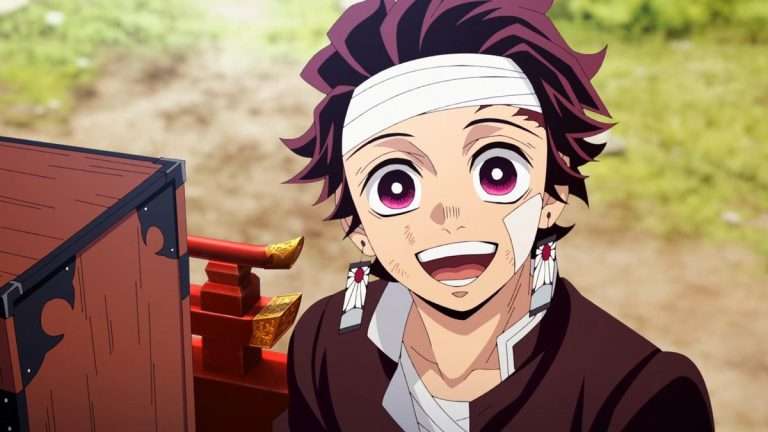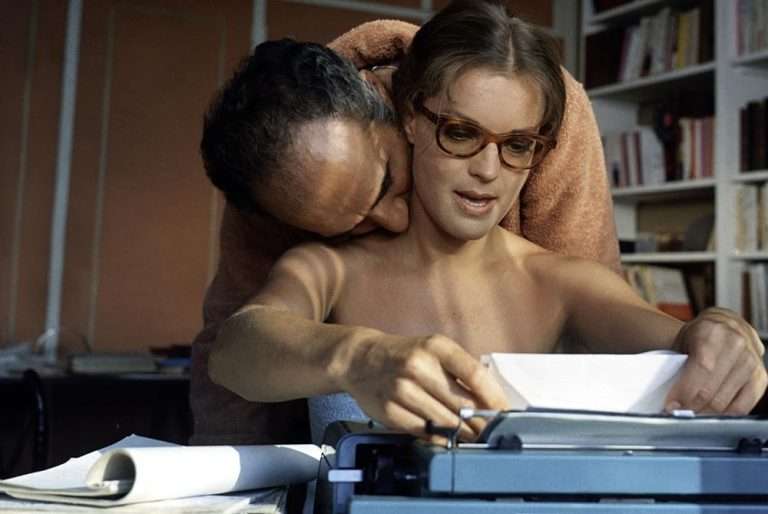Art. Over. Everything. Claims the tagline of Julian Gowdy’s debut film ‘The Devil’s Tongue.’ The low-budget indie feature stars Gowdy as a recovering addict who is trying to make his first feature film, but there isn’t enough funding for him to do so. The parallels to this story from Gowdy’s own personal experience are quite evident. As a recovering addict himself, securing funding for his first film was the biggest battle of them all. However, this parallel and the numerous other meta, self-aware jibs are not enough to float his film across to his audiences. The final product has a vapid and unfocused logic to it, leading the entire set-up to feel like a lost cause.
Coming to the film itself, there’s an intriguing premise at play here. It opens with a sequence of a woman in a wedding dress (Summer Binkley) approaching the devil himself. There’s some kind of bargain at play. However, before we can see the end of this, it is revealed that the entire thing is part of a movie that Julian (played by the director himself) is directing. Since he is low on funds, his actors, who have been working for free till now, can’t seem to give him any more time to get the shot right. The opening credit also clues us to his distant but loved existence with his partner Sarah (Sarah Ward) and how he has been trying really hard to hustle through his tired and exhausting 9 to 5 job just to make enough buck for his creative process.
That said, he is done with it all. When an opportunity in the way of a movie producer’s son, who has been recently released from rehab, arises, Julian devices a plan that will supposedly help him bankroll the movie of his dream. But at what cost? The Devil’s Tongue is the kind of film that shows us the ugly side of obsession and the need for a proper channel for a creative outlet. It is a well-intentioned film that wants to both sympathize and question Julian’s actions to get what he wants to do in life — drawing a wedge between exploitation and creation. The fact that it is entirely based on the director’s own dilemma gives it some gravitas too.
However, the filmmaker’s approach to this thinly written material is so overwrought that it doesn’t pay attention to smaller details like establishing character motivations or even making them feel like extensions of human beings that walk and talk among us.
The result is a movie so consumed with a single central idea that it never tries to capitalize and fill up the void around it. The third act of The Devil’s Tongue, in particular, is so vapid and unfocused that whatever interest it manages to build up comes crumbling down like a house of cards. The extremism that Julian exhibits in his film stems from an existential threat that he faces, but the film doesn’t have enough material to support this character’s motivation, making the entire production feel like it’s running on fumes by the time we come to a conclusion.



![Emperor Putin [2022] Review – The Many Deadly Strategies of a Power-Hungry Tyrant](https://79468c92.delivery.rocketcdn.me/wp-content/uploads/2023/03/ep-768x423.jpg)



![Take Back the Night [2022] Review: An effective #Metoo thriller with an infuriating monster](https://79468c92.delivery.rocketcdn.me/wp-content/uploads/2022/03/Take-Back-the-Night-1-768x405.jpg)
